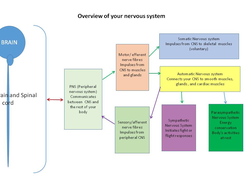Multiple Sclerosis, nutrition and physical activity
Published: May 11, 2018
Many people with MS choose alternative therapies, but the effectiveness of these therapies may be uncertain as in many instances there is insufficient research supporting the hypothesis.
However, that does not necessarily imply that there is no benefit to them at all, just that they may or may not be beneficial.
Overall, the outcome of this review suggests that paying attention to your whole diet is probably more beneficial that focussing on single nutrient supplements.
Malnutrition, which occurs when you lack proper nutrition either through not getting enough to eat, not eating the proper foods, or not being able to digest foods properly, is a problem of many people with MS.
Nutrient supplementation may seem a safe alternative if you think your dietary intake may not be meeting your needs.
However, many supplement doses recommended are often far in excess of recommended dietary intake, and over consumption of some vitamins and minerals is associated with adverse health effects.
In addition, consuming nutrient supplements may not provide the same benefit as eating whole foods which contain those nutrients.
The intention of this review is to provide research information about various dietary and nutrient interventions that have been suggested to be potentially beneficial for people with MS.
Physical activity also appears to be an important component of MS therapy.
Ultimately, it is up to you to decide whether a particular dietary intervention or nutrient supplement may (or may not) be appropriate for you.
What is multiple sclerosis (MS)
Multiple sclerosis (MS) is an autoimmune disease which causes inflammation and damage to myelin, the protective covering of the nerves of your central nervous system (brain and spinal cord).
Myelin insulates your nerves and promotes nerve impulse transmission along your nerve fibres.
Damage to myelin, particularly when myelin is replaced by scar tissue, disrupts nerve impulse transmission and may result in nerve damage to neuron and axon tissue in your brain and spinal cord.
Development of MS is a complex process which appears to involve T-cells, B lymphocytes, macrophages microglial cells, antibodies, activated complement, cytokines, matrix metalloproteinases, mitochondria malfunction, and oxidative stress.
Currently there is no cure for MS, but early diagnosis can identify whether pharmaceutical therapy or non-pharmaceutical therapy would be beneficial.
The McDonald criteria were developed in 2001 and updated in 2017 to include the use of magnetic resonance imaging (MRI) to identify brain damage, and to ensure early and accurate diagnosis.
Blood tests can identify a restricted CNS immune response by elevated levels of immunoglobulin-secreting B-cells and plasma cells in your CNS.
MS development is slow with symptoms emerging overtime which include:...Link to the full article to learn more.
References
1.
MS Society of Canada: https://mssociety.ca/managing-ms/newly-diagnosed/common-questions
2.
Bowling, A. Vitamins, Minerals & Herbs in MS: and introduction. 2015 National MS Society
3.

